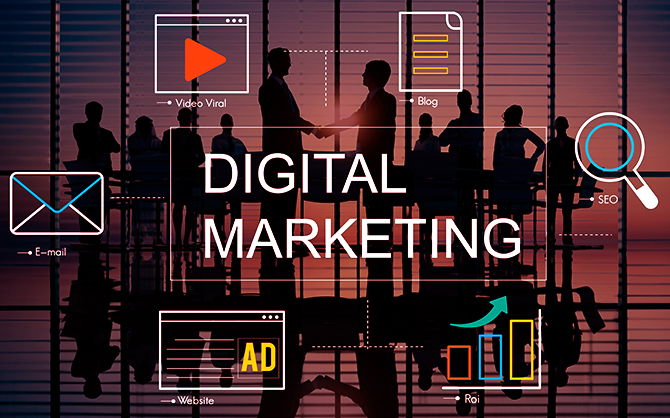E-Marketing

E-marketing, also known as digital marketing, is the process of promoting products or services using electronic media. This can include a variety of tactics such as search engine optimization (SEO), social media marketing, email marketing, and online advertising.
The importance of e-marketing lies in the fact that the majority of consumers now research products and services online before making a purchase. By utilizing e-marketing strategies, businesses can reach a wider audience and increase their visibility on the internet, which can ultimately lead to more sales and revenue.
There are several advantages of e-marketing, including:
Cost-effectiveness: E-marketing is relatively inexpensive compared to traditional forms of marketing, such as print or television advertising.
Reach: E-marketing allows businesses to reach a global audience at a fraction of the cost of traditional marketing methods.
Targeting: E-marketing allows businesses to target specific demographics, such as age, gender, and location, which can increase the effectiveness of campaigns.
Measurable: E-marketing campaigns can be easily tracked and measured, allowing businesses to see which campaigns are performing well and which ones need to be improved.
Interactive: E-marketing allows for interactivity, such as the use of social media, which can increase engagement and create a sense of community.
Ease of access: E-marketing is easily accessible to both the marketer and the consumer, which can make it more efficient in terms of communication and delivery of services.
There are several types of e-marketing, including:
Search Engine Optimization (SEO): This involves optimizing a website so that it appears higher in search engine results.
Social Media Marketing: This involves using social media platforms such as Facebook, Twitter, and Instagram to promote products or services.
Email Marketing: This involves sending promotional emails to a list of subscribed customers or potential customers.
Online Advertising: This includes display ads, pay-per-click ads, and sponsored content.
Content Marketing: This involves creating valuable and informative content to attract and engage a specific target audience.
Influencer Marketing: This involves partnering with individuals who have a significant following on social media to promote products or services.
Overall, e-marketing is a crucial aspect of any business's marketing strategy. By utilizing digital tools and platforms, businesses can reach a wider audience and increase their visibility online, ultimately leading to more sales and revenue.